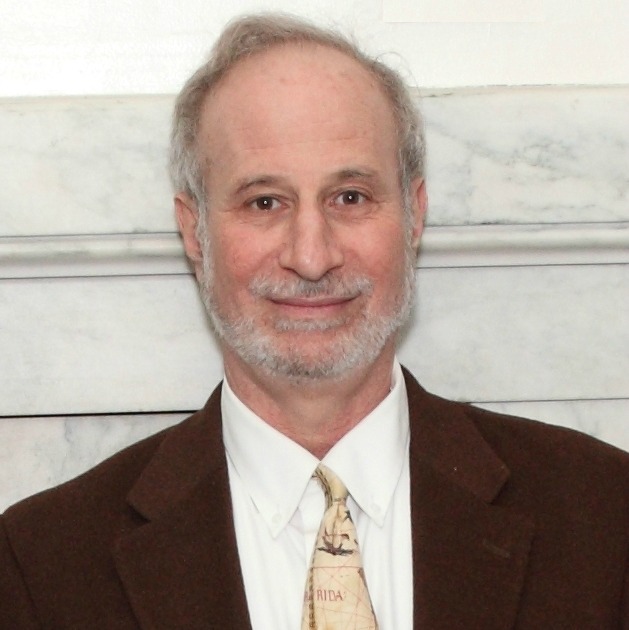

 “I am spiritual. I am not religious.” I respond to this oft-invoked refrain with a chuckle and a question: What do you mean by “spiritual.” I find it a trifle amusing because I strongly doubt that religious professionals—priest, ministers, rabbis, etc.—would deny that they are doing something spiritual when they are acting religiously. In other words, there is a certain vagueness to the terms and their meanings have changed through time. To be sincere, I think I know what is meant by this assertion, which is implicitly rebellious. Those who proclaim to be spiritual in opposition to being religious are asserting that the traditional religions, with their historical conventions, doctrines, creeds, delivered with it a heavy dose of authority, bear little appeal. Those who nowadays identify as “spiritual” are asserting that they want their religion freelance and independent of established precepts, formulations, and practices.
“I am spiritual. I am not religious.” I respond to this oft-invoked refrain with a chuckle and a question: What do you mean by “spiritual.” I find it a trifle amusing because I strongly doubt that religious professionals—priest, ministers, rabbis, etc.—would deny that they are doing something spiritual when they are acting religiously. In other words, there is a certain vagueness to the terms and their meanings have changed through time. To be sincere, I think I know what is meant by this assertion, which is implicitly rebellious. Those who proclaim to be spiritual in opposition to being religious are asserting that the traditional religions, with their historical conventions, doctrines, creeds, delivered with it a heavy dose of authority, bear little appeal. Those who nowadays identify as “spiritual” are asserting that they want their religion freelance and independent of established precepts, formulations, and practices.
When I assert that these terms have changed through time, let’s look at the concept of spirituality and how it can apply to contemporary Ethical Culturists. I see three steps demarking its evolution.
The historical meaning, which remains the normative position for traditional adherents of the monotheistic faiths, entails a literal belief in independent spiritual beings. Ghosts, angels, and demons are spiritual beings. God, of course, is the supreme spiritual Being. What this connotes is a living being that is incorporeal; in other words, does not have a body. These beings are closely identified with supernaturalism
As we move into the nineteenth century, a second sense of spirituality emerges, which is more philosophical and can trace its origins to the Greeks, especially Pythagoras, Plotinus, and most influential of all, Plato. Spirituality here is abstract, partakes of incorporality, but does not suggest or require supernaturalism. Ralph Waldo Emerson, who posited a universal spirituality that flows through all things, including us, referred to this spiritual reality as the “Oversoul.” Emerson’s spirituality could be palpably felt in nature. Hence, he and his comrades spent lots of time hiking in forests. But it is also instantiated in the great of ideals of Truth, Justice, and Beauty (always initiated with capital letters). Morality is closely aligned with Emerson’s spirituality.
Our own Felix Adler was in this tradition, and expended much intellectual effort in laying out his concept of the spiritual. His philosophical devotions in this regard were creative and complex, and in their specific details were unique to him. In briefest terms, Adler was a philosophical idealist (shades of Plato here) and as such held to the notion that the mind creates reality. All things apprehended by the senses pass through the mind which is like a filter that gives the world shape and substance. And since there can be nothing that is ulterior to the processes of mind, which Adler termed the “functional finalities,” that which the mind so creates is real in the most foundational sense.
What Adler does next involves a leap, which in my humble interpretation requires more explanation and justification than he gives it. He takes these mental processes and then projects them outward toward infinity, and these processes become a thing, indeed a spiritual thing, which he terms “the Spiritual Universe.” Recall that this spiritual reality is not generated by our senses. He therefore refers to them as “supersensible” realities. They are “above the senses” but they are not supernatural, which Adler interprets as nothing other than an unwarranted extension (we might say distortion) of natural phenomena. This spiritual universe is identified with ultimate hardcore reality, but it is by no means personal. Adler proclaims that there resides in all of us a component, a parcel of this spiritual realm. We are units or members of the spiritual universe and we are all joined each to all the others and to the whole, as if components of an infinite web. Its structure is organic, which means that a change brought about by any of its members (us) effectuates a reciprocal response in all the others and in the whole. Hence, Adler’s supreme ethical rule: “Seek to elicit the best (i.e. the unique spiritual essence) of the other and you will thereby elicit the best in yourself.”
This framework lay at the heart, even if implicitly, of the majority of Adler’s addresses, especially after the midpoint of his career. But it is not clear that he philosophically won many adherents even among the members of the movement he had founded.
In his own lifetime the implicit philosophy of Ethical Culture changed from Adler’s idealism to variants of naturalism, which is what we are left with today. While Adler’s idealism suggested a belief in a literal spiritual realm (he vigorously asserted that there is a reality beyond the natural world) our contemporary humanism generally eschews this belief. Adler was clear that by “spirituality” he was not referring to heightened emotionalism as might be evoked by listening uplifting music, but a sublime rapport with the spiritual realm as he elaborated it.
As suggested, for Adler, spirituality did not partake of an emotional or psychological experience. But today, in my view, our naturalism requires that it does.
So this brings us to the questions, what is the nature of spiritual experience for contemporary Ethical Culturists? What structure does it have?
I believe that there can be several answers to these questions. One that appeals to me is that spiritual experience in the modern sense partakes of a deeply felt experience that the person has of connection with something larger and greater than oneself of which one feels oneself to be a part. “Connection” is the key concept. That connection can be with the grandeur of nature. It can be a felt sense of community with other people or humankind, not only with others here and now, but as felt bond extending back to those who came before us and extending forward to those who will succeed us in the future. It can be a felt connection with the indwelling beauty that lies beneath surface of captivating art, or it can be communion with elegant ideas.
In my view, invoking “the spiritual” attempts to describe something uplifting and edifying in the human experience that elevates us beyond the pedestrian realm of mere utility and therefore places us in touch with something invaluable and infinitely precious. It partakes of experience that reaches to the utter depths of our humanity. It is an orientation that as humanists and human beings, who partake of the wonders of existence, is worthy of our sincerest devotion and heartfelt cultivation.
Sign up for emails from AEU